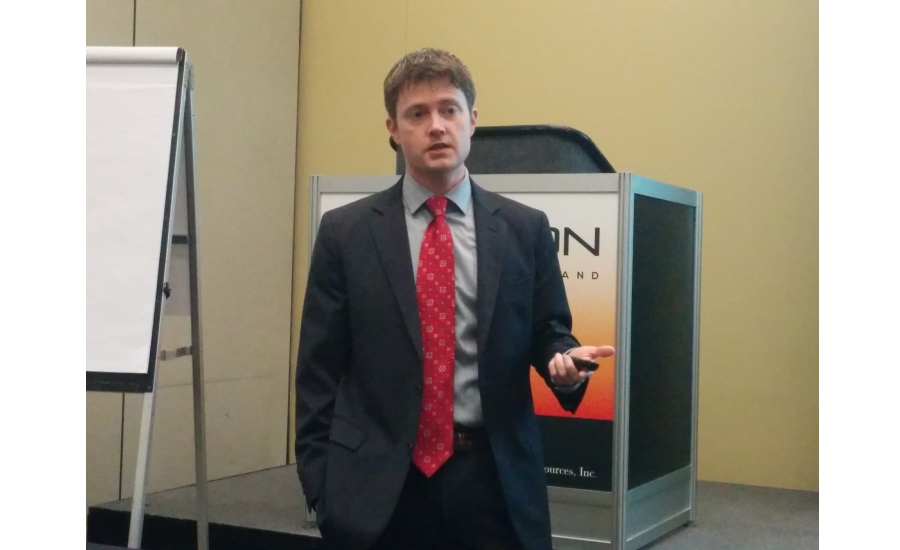BALTIMORE — Watch what you say. Or don’t worry — you’re in a federally protected class.
Confused? Both messages were among the tips given by a labor and employment attorney who spoke to Metalcon attendees during an Oct. 26 session on the ins and outs of hiring and firing workers.
John Cruickshank, a senior partner at Alaniz Schraeder Linker Farris Mayer LLP in Houston, said the federal employment landscape is likely to undergo changes regardless of which candidate wins the White House Nov. 8.
From discrimination to wages, construction business owners need to keep up with what’s happening in their communities and with state and federal lawmakers, Cruickshank said. For example, expect the minimum wage to go up significantly in the next few years.
“I don’t know why more people aren’t talking about it,” he said.
Making things more confusing, Cruickshank said, is that governments have steadily been expanding the definitions of what conditions and types of people are protected against discrimination. It may be easier than you think to run afoul of labor laws.
“Almost everyone in this room is in a protected class,” he said. “Discrimination need not be intentional.”
Cruickshank strongly suggested that every job, regardless of the experience level required, be posted publically.
“Always, always, always post a job,” he said. List the job’s duties, minimum requirements, qualifications and expectations. And when you bring in an applicant, ensure they fill out paperwork before proceeding too far into the hiring process.
“Every single applicant needs to complete an application,” he said.
Once you’re conducting an interview, Cruickshank recommended starting with light topics — sports or the weather — and encourage applicants to talk about themselves and their resumes.
“You always want to break the ice. It’s not an inquisition,” he added. “If you’re doing all of the talking, it’s a bad interview.”
But don’t make the interview too loose.
“Have a script of prepared questions” and ask them of every applicant, he said. Don’t try to wing it.
“When you do, you’re wasting your time and you’re wasting the applicant’s time,” he said.
Ensure you take notes during every interview. Write down applicants’ responses to your questions and ensure the notes are legible: they may be used in court. Never ask questions about racial issues, religious beliefs or ethnic background. Such topics are inviting lawsuits.
Despite all his admonishments on what not to do, Cruickshank did tell employers not to worry too much.
“Unless you do something foolish … you’re not going to get sued for something you say in the interview room,” he said.
For more SNIPS Shortcuts videos, please visit the video page.



Report Abusive Comment